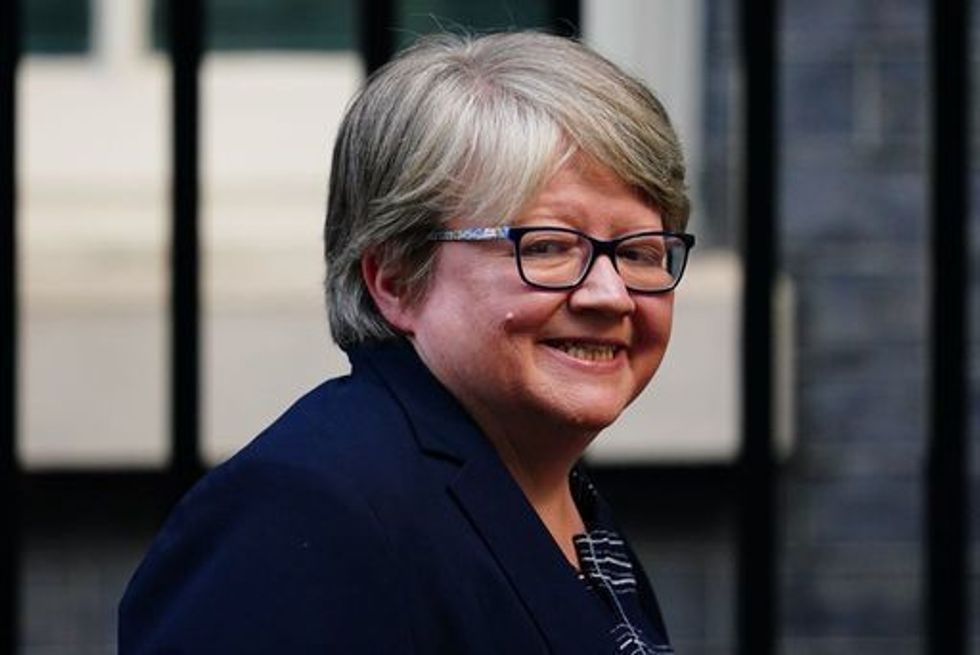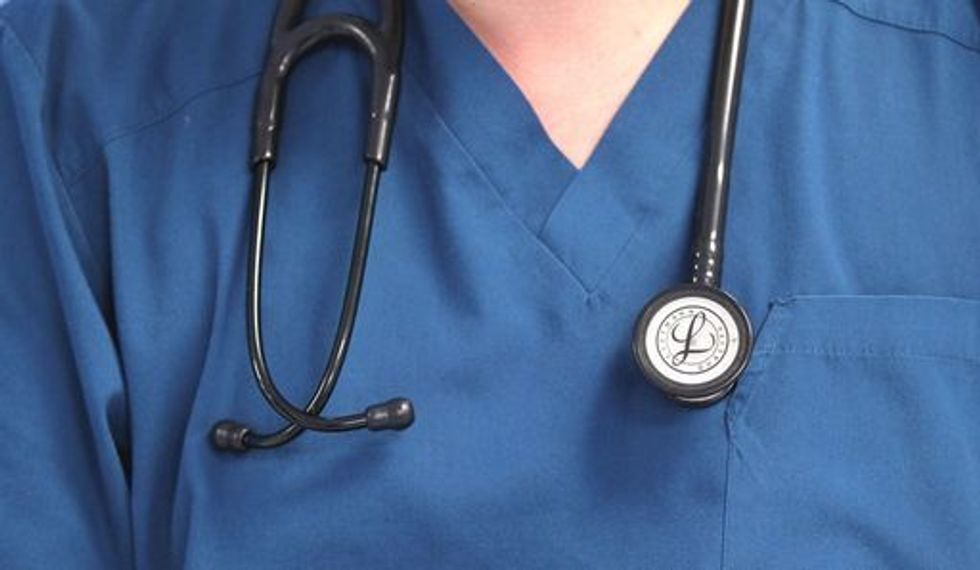NHS patients to be promised a GP appointment within two weeks under new plans
Under new plans to help improve access to care in England, GP patients are to be offered an appointment for non-urgent needs within two weeks.
Don't Miss
Most Read
Latest
Health and Social Care Secretary Therese Coffey will also outline plans for patients to be able to look at how local surgeries are performing compared to each other with regard to patient access.
But leading GPs have slammed the plans saying they will have “minimal impact” on patient care.
And publishing “league tables” of surgeries will not “improve access or standards of care”, the Royal College of GPs said.
Meanwhile, Ms Coffey will say that more GP assistants and advance nurse practitioners are to be employed to free up valuable GP time.
Therese Coffey is expected to make the announcement
Victoria Jones
In her new “Plan for Patients”, Ms Coffey – who is also Deputy Prime Minister – will try to help ease the 8am scramble for appointments as the NHS rolls out new telephone systems.
The systems, already used by some surgeries, will mean that patients are not automatically cut off if there is no-one available to take their call.
Patients will be told their place in the queue and maybe asked a few simple questions or offered information about practice opening times while waiting.
Meanwhile, she will outline plans to publish data so patients can assess how their GP practice is performing compared to other local surgeries with regards to the number of appointments delivered and how long people need to wait for care.
Patients with non-urgent needs will not have to wait longer than a fortnight to be seen, she will say.
NHS Digital figures show that 15% – 3.9 million – of the 25.9 million GP appointments made in England in August occurred at least two weeks after the appointment was made.
Patients who have urgent needs will still be offered same-day access.
Meanwhile Ms Coffey, will say the Government will “free up funding” for practices to employ more roles, including GP assistants and more advanced nurse practitioners, but officials have not outlined how much money will be made available.
Government officials have estimated 1.2 million appointments each year can be handled by other surgery staff.
GP assistants carry out administrative tasks and sometimes they can carry out basic clinical duties, while advanced nurse practitioners are registered nurses with extra qualifications who can help treat patients.
Pharmacists will be given new responsibilities to manage and supply more prescriptions such as contraception, she will say.
This could free up a further two million appointments every year, officials have estimated.
Pharmacists could also take referrals from emergency care for minor illnesses or symptoms, such as a cough, headache or sore throat, the Department of Health and Social Care said.
Ms Coffey will outline the plan, which has not yet been published, in the House of Commons on Thursday where she is expected to set out more detail on addressing the record backlog of care and ambulance service problems.
She is also going to try and rally the NHS army of volunteers who provided support during the Covid-19 pandemic to support the NHS and social care sectors.
“I will put a laser-like focus on the needs of patients, making their priorities my priorities and being a champion for them on the issues that affect them most,” she is expected to say.
“Our Plan for Patients will make it easier to get a general practice appointment and we will work tirelessly to deliver that, alongside supporting our hardworking GP teams.
“We know this winter will be tough and this is just the first step in our work to bolster our valued NHS and social care services so people can get the care they need.”
Amanda Pritchard, NHS England chief executive, said: “I know how much patients value timely, convenient access to GPs and primary care, the front door to the NHS, which is why we are continuing to drive improvements, including new roles to better meet patients’ needs and new tech to make contacting your local surgery easier.
“NHS staff are working incredibly hard to deliver record numbers of GP appointments for patients, with 11 million more this year so far than the same period last year, and more than four in five people who need an appointment seen within two weeks, including more than two fifths within one day.
“We will work with the Government so we can support NHS staff to deliver these new ambitions for patients, underpinned by the development of a long term workforce plan.”
Commenting on the plans, Professor Martin Marshall, chair of the Royal College of GPs, said: “It’s a shame that the Health Secretary didn’t talk to the College and to our members on the front line before making her announcement because we could have informed her of what is really needed to ensure a GP service that meets the needs of patients and is fit for the future.
“Lumbering a struggling service with more expectations, without a plan as to how to deliver them, will only serve to add to the intense workload and workforce pressures GPs and our teams are facing, whilst having minimal impact on the care our patients receive.
“Whilst we support transparency we strongly caution against creation of ‘league tables’, which we know from international research evidence do not work in improving access to or standards of care.”
Helen Buckingham, director of strategy at the Nuffield Trust think tank, added: “The truth is that we are chronically short of GPs, with the number of GPs per person in England falling year after year.
“Targets don’t create any more doctors.”
GP patients will be seen within two weeks
Lynne Cameron
Labour’s shadow health secretary Wes Streeting added: “With the last Labour government, patients were guaranteed a GP appointment within 48 hours until the Conservatives scrapped it – the Conservatives promising to solve the difficulties patients face in getting a GP appointment is like the arsonists promising to put out the fire.
“The Conservatives have failed to provide the doctors and nurses needed to treat patients on time, and patients are paying the price in record long waiting times.
“Unless the Government bring forward a plan for the NHS staffing crisis tomorrow, they don’t have a plan for the NHS.”
Meanwhile Azeem Majeed, professor of primary care and public health at Imperial College London, said that the NHS could be facing a very tough winter.
Asked at a briefing on winter pressures how bad it would be on a scale of one to 10, he said: “My answer would be 10.
“The NHS is already under a lot of pressure.
“So it’s quite likely this winter will be even worse than it is now through to January or February, so I think it could be a very bad winter for the NHS this year.”
It comes after health leaders urged the Government to invest in social care in a bid to alleviate pressures in the NHS.
The NHS Confederation said that social care investment would be the “best and most effective action” that the Government could take to alleviate “the most extreme winter pressures that the NHS has ever faced”.













